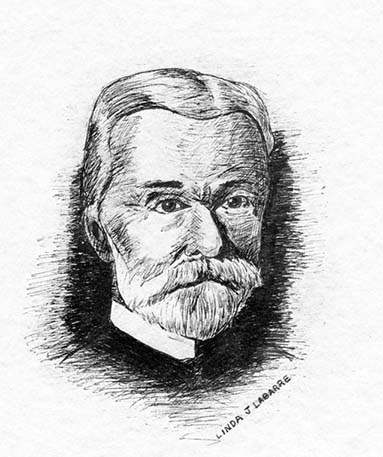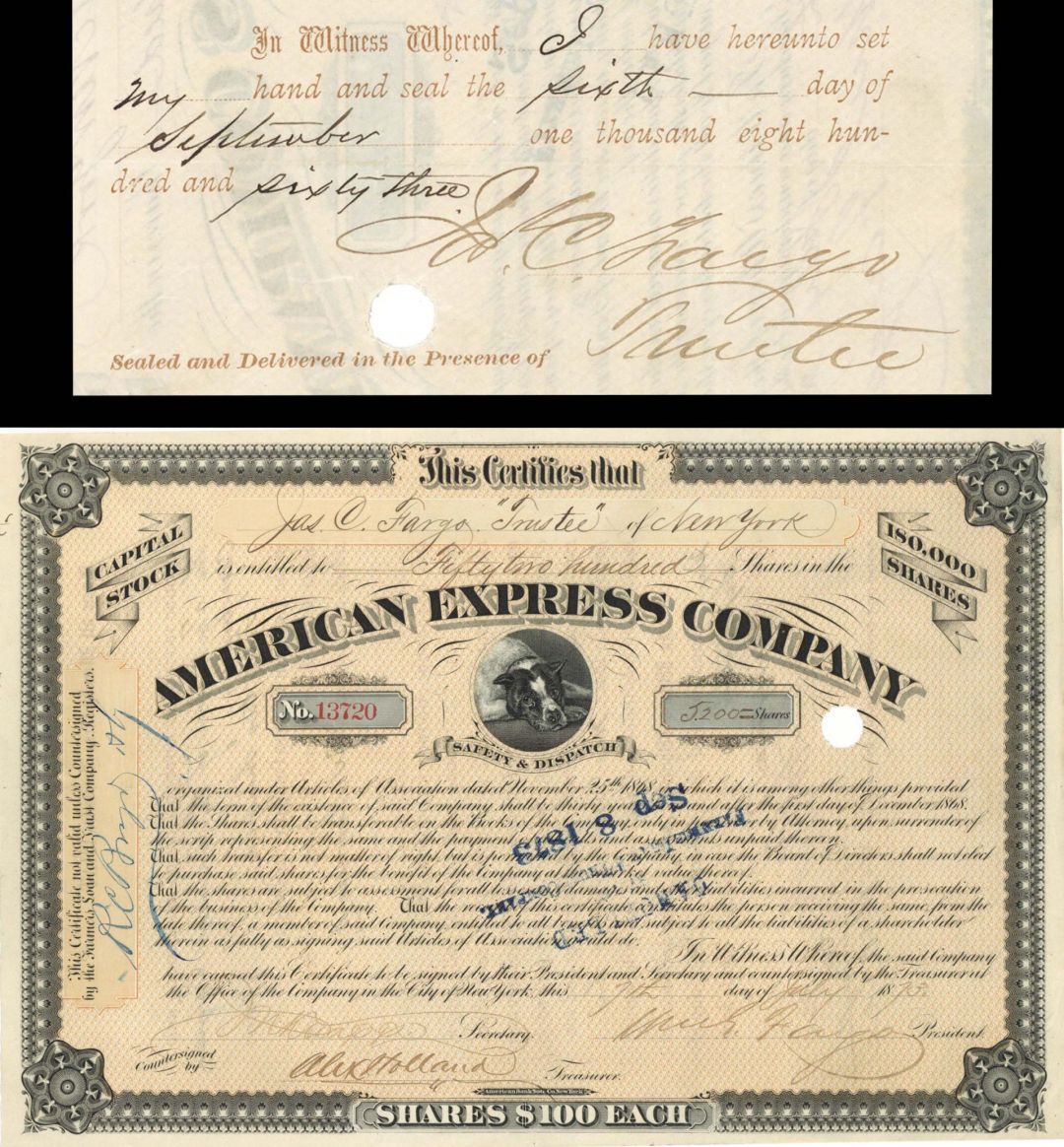American Express Co. issued to and signed by J.C. Fargo and W. G. Fargo - 1873 dated Autographed Stock Certificate
Inv# AG2910 AutographStock issued to and signed on back by Jas. C. Fargo and at front by Wm. G. Fargo as president. This piece is the nicest found of this very rare signature combination. (Originally in my personal collection). Extremely rare and choice! 5,200 shares!

James Congdel Fargo (1829-1915) was the son of James Fargo and began his career with Wells & Co., where his brother, William George Fargo, was a partner, in Buffalo in 1844. In 1866, after serving as agent and manager of the firm's successor, the American Express Company, he relocated to New York to assume the role of General Superintendent and Manager. By 1881, he had advanced to the position of President of both the American Express Company and the Westcott Express Company, as well as the National Express Company. As the president of American Express, James C. Fargo enjoyed considerable wealth and recognition. Thus, it was understandable that he felt slighted when he encountered difficulties cashing checks during a trip to Europe in 1890. The European bankers, unfamiliar with him, refused to honor his checks. This incident raised the question of whether Americans would consistently face cash challenges while traveling in Europe. In response, Marcellus F. Berryn, an employee of American Express, sought to devise a solution. He later remarked, "Every individual has a unique way of signing their name. Therefore, a reliable method for carrying money to unfamiliar locations must include the bearer’s signature and stipulate that it will only be cashed upon the addition of a matching signature in the presence of witnesses." On July 7, 1891, Berryn was awarded four copyrights for what he termed "the travelers cheque," with William C. Fargo receiving the first one. A few weeks later, he successfully cashed a fifty-dollar cheque in Leipzig, Germany, without any issues. In 1891, American Express sold travelers checks amounting to $9,120.00, and this figure has consistently increased each year, reaching $24.6 billion in sales by 2000.

William George Fargo (1818-1881) Fargo, a pioneer American expressman, was born in Pompey, New York. From the age of thirteen he had to support himself, obtaining little schooling, and for several years he was a clerk in grocery stores in Syracuse. He became a freight agent for the Auburn & Syracuse railway company at Auburn in 1841, an express messenger between Albany and Buffalo a year later, and in 1843 a resident agent in Buffalo. In 1844 he organized, with Henry Wells (1805-1878) and Daniel Dunning, the first express company (Wells & Co.; after 1845 Livingston & Fargo) to engage in the carrying business west of Buffalo. The lines of this company (which first operated only to Detroit, via Cleveland) were rapidly extended to Chicago, St. Louis, and other western points. In March 1850, when through a consolidation of competing lines the American Express Company was organized, Wells became president and Fargo secretary. In 1851, with Wells and others, he organized the firm of Wells, Fargo & Company to conduct an express business between New York and San Francisco by way of the Isthmus of Panama and on the Pacific coast, where it long had a virtual monopoly. In 1861 Wells, Fargo & Co. bought and reorganized the Overland Mail Co., which had been formed in 1857 to carry the United States mails, and of which Fargo had been one of the original promoters. From 1862 to 1866 he was mayor of Buffalo, and from 1868 to his death in Buffalo, he was president of the American Express Company, with which in 1868 the Merchants Union Express Co. was consolidated. He was a director of the New York Central and of the Northern Pacific railways. Fargo Avenue in Buffalo, and Fargo, North Dakota are named after him.












Ebay ID: labarre_galleries